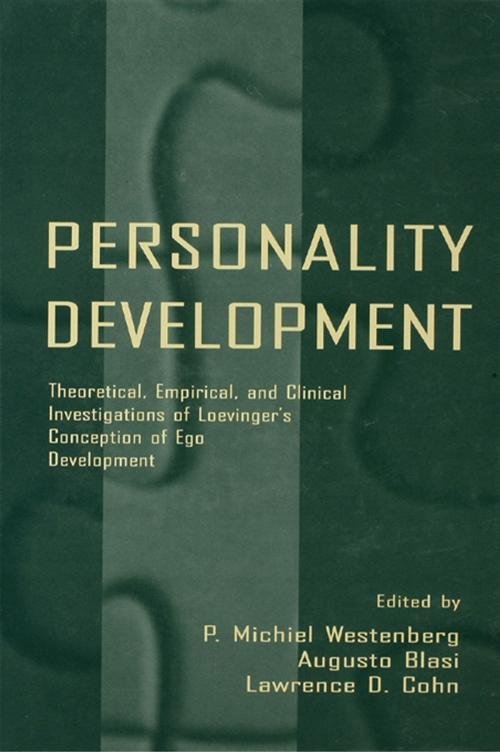Personality Development
Theoretical, Empirical, and Clinical Investigations of Loevinger's Conception of Ego Development
Nonfiction, Health & Well Being, Psychology, Personality| Author: | ISBN: | 9781134788415 | |
| Publisher: | Taylor and Francis | Publication: | May 13, 2013 |
| Imprint: | Psychology Press | Language: | English |
| Author: | |
| ISBN: | 9781134788415 |
| Publisher: | Taylor and Francis |
| Publication: | May 13, 2013 |
| Imprint: | Psychology Press |
| Language: | English |
Jane Loevinger's innovative research methodology, psychometric rigor, and theoretical scope have attracted the attention of numerous scholars and researchers. Empirical investigations employing Loevinger's Washington University Sentence Completion Test of ego development (WUSCT) have appeared with increasing frequency and total more than 300 studies. Following the publication of the first comprehensive revision of the scoring manual for the WUSCT, this volume reflects on the strengths and limitations of Loevinger's developmental model.
It is divided into sections that correspond with four broad questions that can be raised about Loevinger's developmental model:
* What is its scope and intellectual tradition?
* What evidence is there for construct validity?
* What is its relationship to other social-developmental models?
* What is its clinical relevance to Loevinger's model of ego development?
This four-part grouping provides a framework for effectively organizing the present material, and frequently, the questions raised in one section are addressed in other sections as well. In the concluding chapter, Loevinger addresses some of the ideas that are proposed by the various authors. She also presents the origin of the ego development concept by recounting its history.
Jane Loevinger's innovative research methodology, psychometric rigor, and theoretical scope have attracted the attention of numerous scholars and researchers. Empirical investigations employing Loevinger's Washington University Sentence Completion Test of ego development (WUSCT) have appeared with increasing frequency and total more than 300 studies. Following the publication of the first comprehensive revision of the scoring manual for the WUSCT, this volume reflects on the strengths and limitations of Loevinger's developmental model.
It is divided into sections that correspond with four broad questions that can be raised about Loevinger's developmental model:
* What is its scope and intellectual tradition?
* What evidence is there for construct validity?
* What is its relationship to other social-developmental models?
* What is its clinical relevance to Loevinger's model of ego development?
This four-part grouping provides a framework for effectively organizing the present material, and frequently, the questions raised in one section are addressed in other sections as well. In the concluding chapter, Loevinger addresses some of the ideas that are proposed by the various authors. She also presents the origin of the ego development concept by recounting its history.















